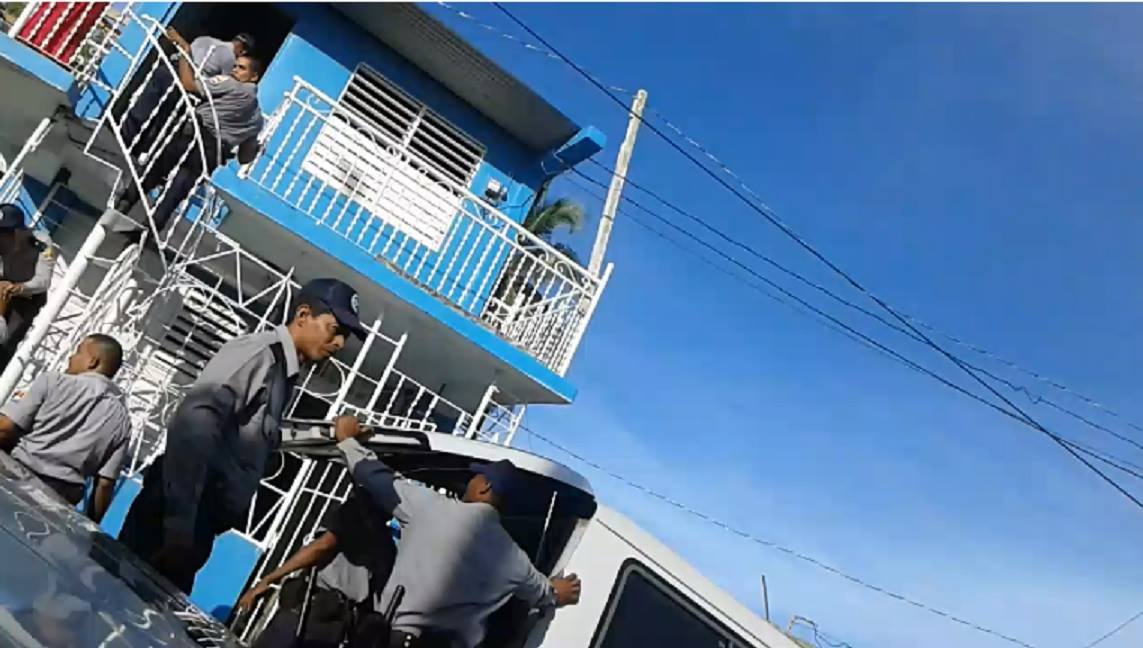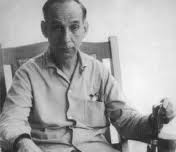
Luis Felipe Rojas, 20 December 2016 — Today I am going to tell you something you absolutely are not going to believe. But I don’t care, the military dictatorship violates human rights in cold blood and many don’t even want to know. Great is the fool who defends them.
The brothers Geordanis and Adael Muñoz Guerrero are two activists of the Patriotic Union of Cuba (UNPACU), an opposition organization located mainly in Santiago de Cuba. The Muñoz brothers were convicted of contravention: they didn’t pay the 24,000 peso fines imposed on them when they appeared with anti-Castro signs in their neighborhood of Rancho Grande, Palma Soriano, where they live.
Geordanis’s wife told me on the Radio Marti program Contacto Cuba (Minute 12:43), what happened to them on 3 November, when they were both in prison in Aguadores. An official from State Security named Dainier Suarez Pagan came to them. He ordered Geordanis handcuffed behind his back, took him down from Detachment 1, and he himself gave him a hard beating. continue reading
Yenisei Jiménez told me herself, her voice breaking, because she became furious telling about the abuse.
On 9 September 2015 these activists tried to go to the Shrine of the Virgin of Charity of Cobre. On the way they were detained by the police, civil officials and members of the Rapid Response Brigades — ’ordinary’ citizens who supposedly rise up spontaneously to repress their fellow citizens — and they saw them in an unusual way.
Pagán, the bad man who beats women and men in Santiago de Cuba, took charge of the humiliation. He undressed Geordanis and beat him with a rubber cane and told him if he wanted he could put it on the social networks. As this young regime opponent is not ashamed of being martyred for the freedom of his homeland, he let a photo be taken of his bruised buttocks and handed it over to Jose Daniel Ferrer (UNPACU’s leader and former prisoner of the Cause of 75 from the Black Spring of 2003) and he posted it on his Twitter account.

The Muñoz Guerrero brothers were sentenced to prison in October for 6 months (Adael) and one year (Geordanis).
Geordanis Muñoz Guerrero leads the “Pedro Meurice Estiú” cell in Palma Soriano and had twice gone to Argentina invited by the Center for the Opening and Development of Latin America (CADAL). He participated in workshops on Human Rights and ’nonviolent’ struggle, put on by the young Serb Srdja Popovic, leader of the OTPOR movement.
There is more. Both brothers were fined again, but this time — you won’t believe it — inside the prison. They were fined 2,000 pesos because Geordanis sent a note outside about the bad conditions suffered by common inmates in the prison.
What will the hundreds of Cuban attorneys who know that a G2 official violates all the protocols of Prison Control, Prison Security, Internal Order, Reeducation and sees and mistreats his victims in cold blood do about it?
When are Cuban lawyers, with their law degrees, going to get off the fence?
The henchman Dainier Suárez Pagán is a particularly bad man. He has beaten dozens of opponents throughout the province of Santiago de Cuba. The little that is known of him is that he has the rank of first official (that is, Major or Lieutenant Colonel) and that he comes from the town of San Luis.
Ferrer wrote to the Cuban bishops, hoping to hear, but he has had no response. He did this on 11 September 2015 and started his letter in an elegant way: “Respectable Pastors: (…)” but the prelates turned a blind eye.
Ferrer, who denounces every injustice that happens to his activists, included this paragraph in the letter: “… In those hills (known as” La Tanqueta”), political police agent Dainier Suárez Pagán, with his subordinates, has beaten, injured and harassed more than a dozen activists. They have been stripped and forced, with pistols placed against the heads of these victims, to assume humiliating positions while they threaten to rape them sexually. They have also brought the flame of a match to their chin to force them to shout against their own organization while filming them with a mobile phone.”
Each bishop to his bishopric, all are silent. And the soldiers beat Cubans.
Translated by Enrique

